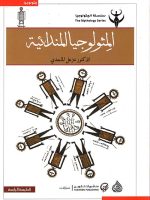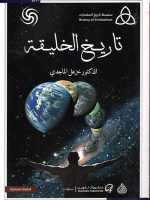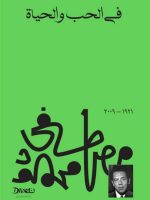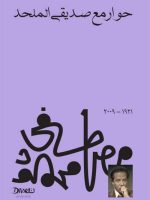Biblical studies continue to attract special attention among intellectuals and readers in general, and researchers and historians in particular, especially when related to the origins and roots of the Torah. The current book, “The Arabian Peninsula and the Torah,” by American Professor James Allen Montgomery, represents one of the pioneering studies in this field, representing the first serious scholarly attempt to link the origins of the Torah and the people of Israel to the Arabian Peninsula.
Despite the passage of more than eight and a half decades since the book was published, the need to translate it and understand its contents remains, especially in light of the growing debate surrounding recent studies that attribute the Torah to the Arabian Peninsula, and the belief of many researchers that it was the first to link the origins of the Torah and the Children of Israel to the Arabian Peninsula.
The importance of this book lies in the fact that its author was the first to shed light on this topic at a time when most biblical studies attributed the origins of the Torah to Egypt or Babylon. The current book invites consideration of another civilization from which the author believes the Torah emerged: the Arabian Peninsula and South Arabia. The current book represents a timely and novel attempt to examine the origin of the Torah, based not only on its texts but also on contemporary archaeological evidence and texts. It is a challenging endeavor in which the author follows a solid scientific approach based on a careful examination of the Torah’s texts and the archaeological evidence associated with them. His background and academic education may have had a significant impact on this.
The entire book presents a comprehensive and astonishing account of the role of the Arabian Peninsula in the history and development of its neighbors, particularly the Hebrews. It discusses the climatic changes that may have contributed to the increasing drought in the Arabian Peninsula and the resulting cultural collapse. It emphasizes that the increased attraction there was not due to water scarcity, but rather because ancient civilizations, which knew how to maximize their water supply, declined for various social reasons when they lost control of water. Thus, drought was not a natural disaster, but rather the result of the collapse of civilizations. With the emergence of numerous books on the contributions of Egypt and Babylon to Israel, it is worth remembering the significant role of the Arabian Peninsula in the heritage of the Torah and the Bible.
save
د.ا0.50The Arabian Peninsula and the Torah
د.ا13.00د.ا13.50
A book that explores the relationship between biblical texts and the Arabian Peninsula from a historical, geographical, and textual perspective.
Available on backorder
| Author | |
|---|---|
| Year | |
| Publisher | Al-Warraq Publishing |
Customer Reviews
There are no reviews yet.
You may also like…
-
Mythology Series Mandaean Mythology
د.ا14.00The book explores the religious beliefs and myths of the Mandaeans, their historical and symbolic roots.
د.ا14.50 -
The History of Civilizations Series The History of Creation
د.ا10.00This book explores the ancient myths and texts that dealt with the origin of the universe and humanity in the civilizations of the ancient world.
د.ا10.50 -
Gilbert Sinoué
د.ا7.00A historical novel that tells the story of the city of Jerusalem through the eyes of multiple characters across the ages.
د.ا7.50 -
History of Religions The Egyptian Religion
د.ا14.00The book presents a comprehensive study of the development of the ancient Egyptian religion, its beliefs, rituals, and its influence on later civilizations.
د.ا14.50













Be the first to review “The Arabian Peninsula and the Torah”